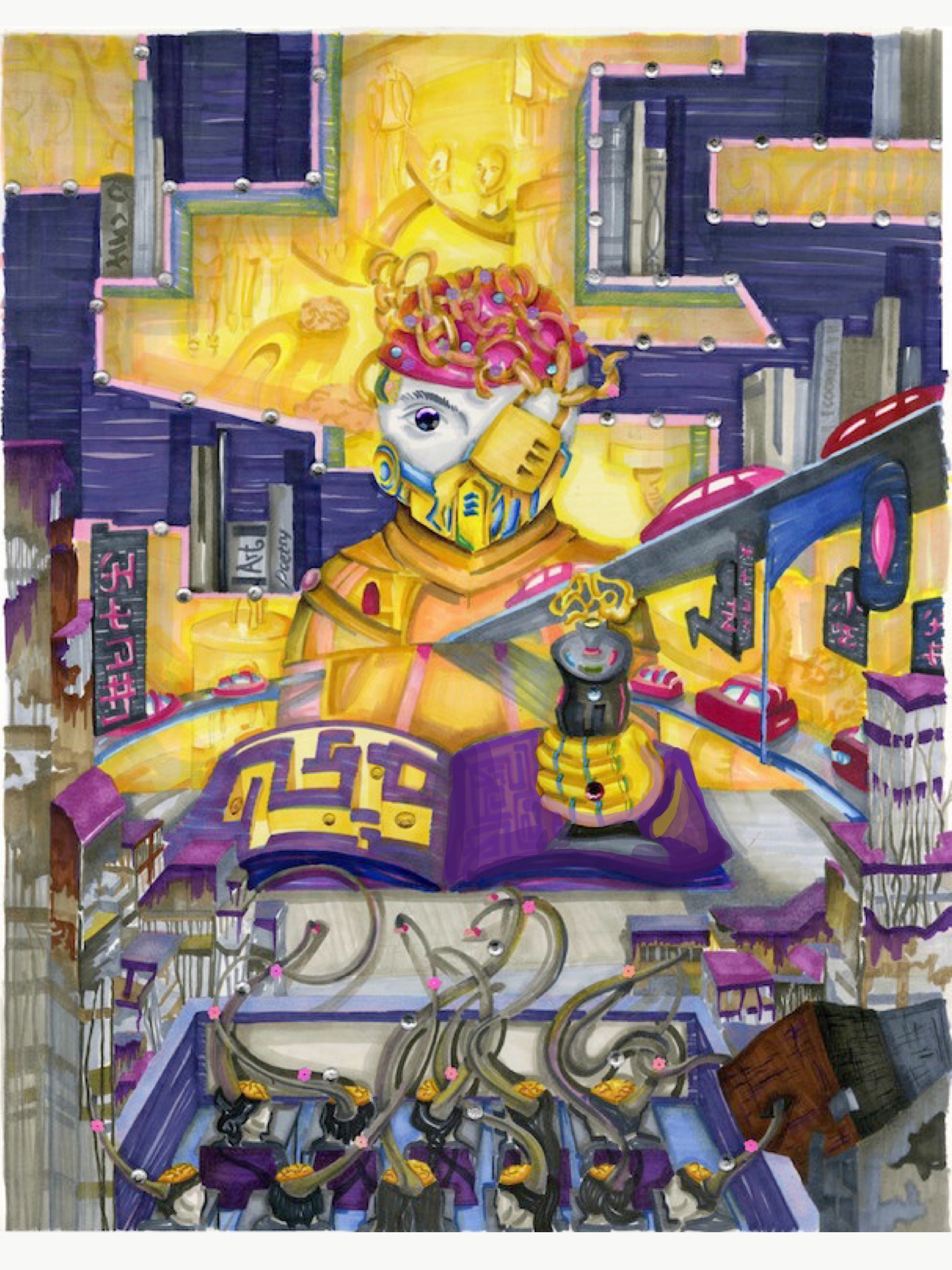2020 Honorable Mention – Hanling Christine Gu

Finals Week
The scientific concept I chose as the centre of my project was neurobiology, focusing my analysis on the the study of how the brain learns and adapts to change. In a recent study conducted by researchers at Carnegie Mellon University, researchers found that although the shape of the human brain has not changed significantly compared those noted in ancestral records, the purposes of neural functions have taken on new forms. This change can be attributed to the differences in the human environment. While humans in the past prioritized surviving through hunting and gathering, humans today have the luxury of safety that affords them the time to learn and study abstract concepts. It is this ability to adapt and repurpose the functions of our brains that has been the driving factor for human innovation and advancement.
For my project, “Finals Week”, I drew a mechanical human model, symbolic of reprogramming the individual mind. If we are able to understand how the brain repurposes its current systems, scientific innovation can be accelerated through effective teaching. Essentially, the brain is like a machine that is encoded based on our experiences, environments, and ideas. By gaining a deeper insight into how this machine functions, we can tap into areas that are most effective when it comes to allowing one to understand [abstract] scientific concepts. In my piece, this is further emphasized by the open brain. The brain is wired and chained to indicate a sense of limitation. The wires are indicative of how humans are able to consistently “download” new ideas and adopt new mindsets as a way to extend our “programs”, or our understanding of the world. However, we are limited because we have yet to understand how the brain processes information most effectively. Without knowing how something functions, much of our learning is dependent on trial and error. In a similar context, teaching others new ideas is similar to writing a code for a system. If we are unable to understand the ins and outs of the code, we often run into bugs that we struggle to fix. When it comes to teaching humans, if we cannot grasp a general idea of how an individual brain takes in information most effectively, it will be difficult to effectively instill new concepts. Thus, being able to understand the brain is pivotal to accelerating human innovation.
Reference
Carnegie Mellon University. “Scientists discover how the brain repurposes itself to learn scientific concepts.” ScienceDaily. ScienceDaily, 12 April 2016.
